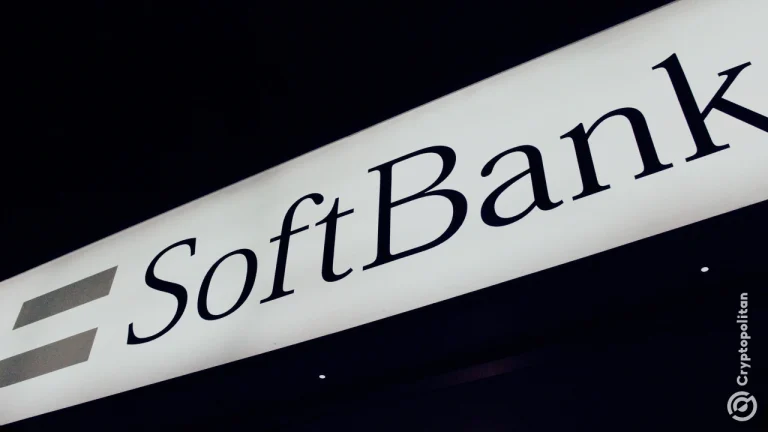Main Highlights
- SoftBank Group’s shares experienced a significant drop, exceeding 8% in Tokyo, as global investors pulled back from artificial intelligence (AI) stocks.
- The sell-off reflects growing concerns about the rapid surge in valuations for AI-related companies and doubts about their near-term revenue potential.
- SoftBank’s substantial investments across the AI spectrum, from semiconductors to software and robotics, position it as particularly vulnerable to market sentiment shifts.
- The decline mirrors a broader downturn in the tech sector, impacting other Asian and U.S. technology shares, including key AI players and semiconductor firms.
- Analysts attribute the market rotation to factors such as slowing chip orders, rising funding costs, and extended AI adoption timelines, leading investors to re-evaluate risk.
AI Stock Sell-off Impacts SoftBank
Shares of SoftBank Group saw a sharp decline on Friday, plummeting over 8% in Tokyo trading. This significant drop reflects a broader market correction occurring globally as investors reassess their positions in artificial intelligence (AI) stocks. The downturn extends losses experienced earlier in the week, signaling a shift in sentiment towards the high-growth technology sector.
The current market movement is driven by mounting skepticism regarding the rapid and potentially inflated valuations of AI-related startups. After a period of intense investor interest throughout the year, a wave of profit-taking has emerged, prompting a re-evaluation of how quickly AI companies can translate technological advancements into sustainable revenue streams.
SoftBank has established itself as a prominent proponent of AI on a global scale. Through its Vision Funds and direct investments, the company holds significant stakes in various AI-dependent industries, including semiconductor manufacturing, AI software development, data infrastructure, and robotics. This extensive exposure makes SoftBank particularly susceptible to fluctuations in investor sentiment towards the AI sector.
The stock had briefly recovered on Thursday, gaining nearly 3% after a substantial 10% fall on Wednesday, which marked its worst trading day since April. However, this rebound proved short-lived, as Friday’s slide erased the previous day’s gains.
Broader Tech Market Under Pressure
The broader Japanese technology market also felt the impact of the sector-wide sell-off. Shares of Advantest, a semiconductor testing company, experienced a significant drop. Similarly, chipmaker Renesas Electronics and Tokyo Electron, a major manufacturer of semiconductor production equipment, also saw their stock prices decline. In South Korea, SK Hynix, a key supplier of memory chips to AI data centers, also faced downward pressure in its trading session.
Market analysts suggest that these decreases are part of a larger rotation away from high-risk, high-reward sectors. Factors such as a slowdown in chip orders, increasing funding costs, and extended timelines for AI adoption are contributing to this market shift.
U.S. Tech Decline Contributes to Global Sentiment
The downturn observed in Asian markets mirrors the losses seen in major U.S. AI and semiconductor shares from the prior trading day. Qualcomm’s stock fell despite reporting better-than-expected results, largely due to concerns about losing a future supply deal with Apple. AMD, which had seen gains earlier in the week on expectations of strong AI chip demand, also retreated. Software companies closely tied to AI development, such as Palantir and Oracle, also experienced declines.
Even prominent companies at the forefront of the AI boom, including Nvidia and Meta Platforms, finished lower in U.S. trading. Their performance sent a cautionary signal to global investors, suggesting that the momentum in the AI sector might be moderating, at least in the short term.
Market strategists note that investors are reassessing their assumptions about the speed at which AI investments will translate into profitable growth. Many companies are making substantial investments in research, cloud infrastructure, and the development of specialized computer chips without immediate returns, leading to increased scrutiny.
SoftBank’s AI Bet Faces Market Scrutiny
Under the leadership of Chief Executive Masayoshi Son, SoftBank’s long-term vision is anchored in the belief that artificial intelligence will fundamentally transform global industries. A cornerstone of this strategy has been the company’s investment in Arm, the British chip designer whose technology underpins a vast majority of the world’s mobile and data devices. The appreciation in Arm’s valuation earlier in the year had significantly bolstered SoftBank’s overall market outlook.
However, SoftBank’s financial fortunes have become increasingly tied to market volatility. The company’s Vision Funds are currently undergoing restructuring, with SoftBank actively reducing its stakes in non-core assets to concentrate on companies with strong AI affiliations.
As global markets adopt a more cautious stance, SoftBank faces increasing pressure to demonstrate clear and immediate pathways to profitability from its substantial AI investments. In the coming weeks, as earnings reports are released and central banks deliberate on monetary policy, investors will be closely watching to determine whether the current sell-off represents a temporary correction or the beginning of a more sustained downturn.
The next few weeks will be a critical period for SoftBank, significantly influencing the market’s perception of its AI-centric strategy.
Expert Summary
The recent downturn in AI stocks has led to a significant drop in SoftBank Group’s share price, reflecting global investor concerns over high valuations and profitability timelines for AI companies. This market shift impacts SoftBank due to its extensive investments in the AI ecosystem.
The sell-off is part of a broader sector rotation, influenced by economic factors and delayed adoption rates, prompting a reassessment of AI investments.
SoftBank now faces pressure to validate its AI strategy and demonstrate tangible returns amid a more cautious investment landscape.

